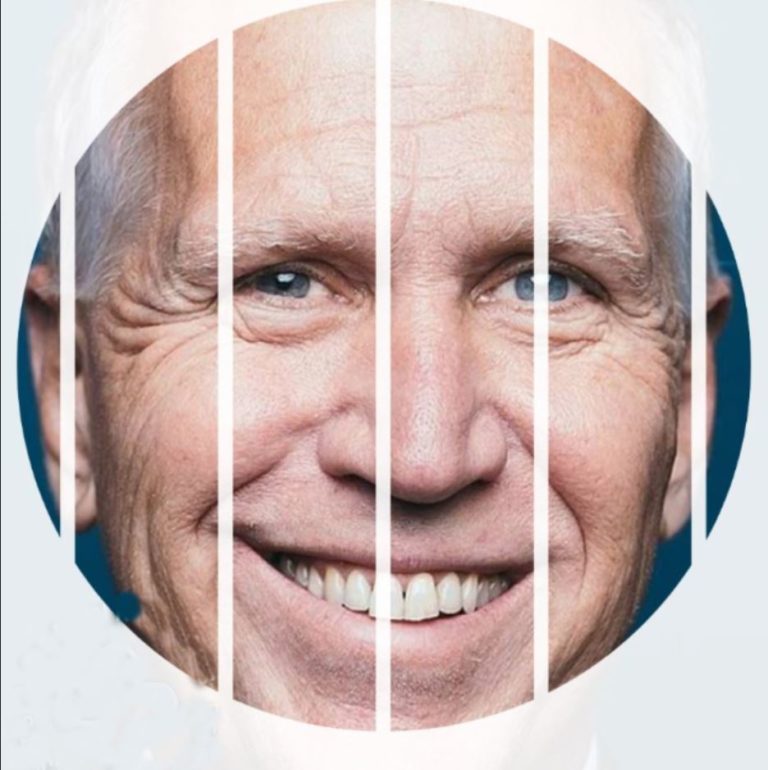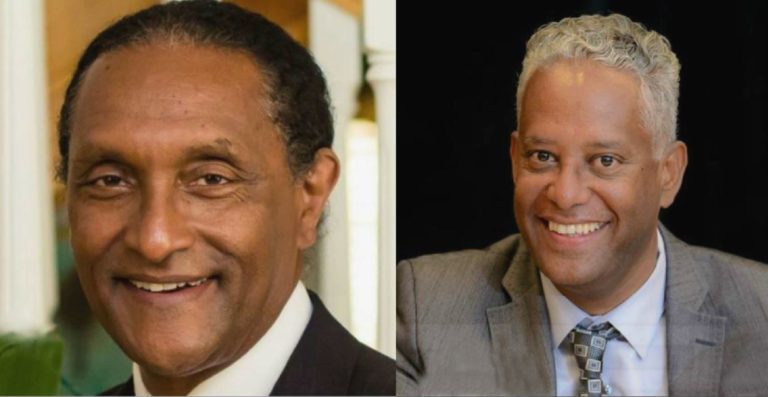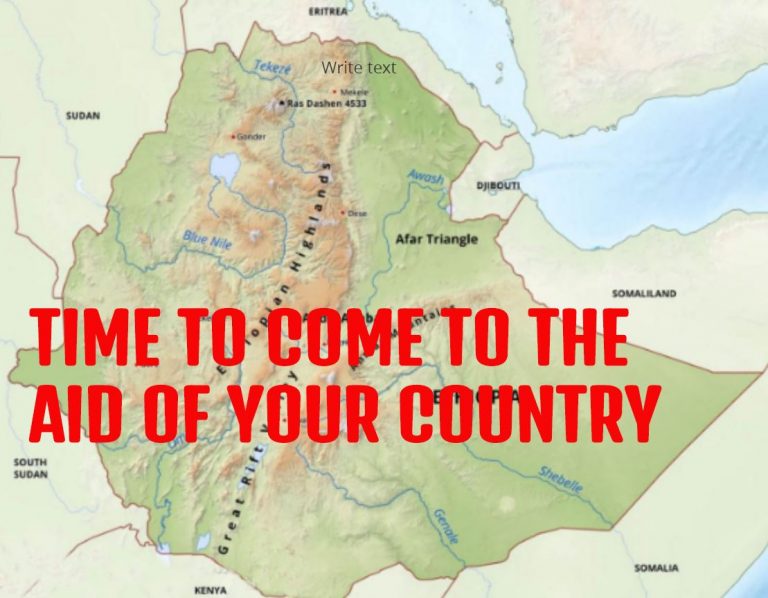The New Press Law
Never was so much owed by so many to so few… How does one thank those who put everything on the line to stand up for justice, truth and the Ethiopian way? How does one express appreciation to those who left their families, friends, neighbors and country to expose the truth about unspeakable crimes committed…
𝐍𝐨𝐯𝐞𝐦𝐛𝐞𝐫 𝟐𝟑, 𝟏𝟗𝟕𝟒, 𝐚 𝐝𝐚𝐲 𝐰𝐡𝐢𝐜𝐡 𝐰𝐢𝐥𝐥 𝐥𝐢𝐯𝐞 𝐢𝐧 𝐢𝐧𝐟𝐚𝐦𝐲 𝐢𝐧 𝐄𝐭𝐡𝐢𝐨𝐩𝐢𝐚𝐧 𝐡𝐢𝐬𝐭𝐨𝐫𝐲! Fifty years ago today, November 23, 1974, 60 imprisoned former officials of H.I.M. Haile Selassie were taken out in the dead of night and massacred by a self-proclaimed, self-styled gang of revolutionary military thug-junta called “Derg.” The junta Derg’s so-called revolution began…

Senator Thom Tillis, the junior senator from North Carolina, is a piece of work. Tillis is one of the triad of co-sponsors of S.3199, “Ethiopia Peace and Democracy Promotion Act.” The other two co-sponsors are Senator Chris Coons, D-DE and Jim Risch, R-ID. S.3199 is not-so-affectionately known as the “crippling sanctions against Ethiopia” bill. S.3199…

ከፕሮፌሰር አለማየሁ ገብረማርያም* እና ከአርቲስት/አክቲቪስት ታማኝ በየነ** ትርጉም በነጻነት ለሀገሬ [ይህ ጽሁፍ በአማርኛ በአጭሩ እንዲተረጎም ተደርጎ በስፋት የሚሰራጭ ይሆናል፡፡] Original post: http://almariam.com/2018/08/17/we-must-keep-our-eyes-on-the-prize-in-ethiopia/ በማህበራዊ መገናኛዎች/ሜዲያ ብቻ ሳይሆን በኢትዮጵያውያን የዲያስፖራው ማህበረሰብ ውስጥ ጭምር በሚሰራጩት አሉባልታዎች፣ የውሸት ወሬዎች እና የማወናበጃ መሪጃዎች ላይ ነቄ ብለናል፡፡ ለማያውቁሽ ታጠኝ እንዲሉ! በጠቅላይ ሚኒስትር አብይ አሕመድ ደህንነት ዙሪያ እየተካሄዱ የሚገኙት የማስፈራራት መሰረተ ቢስ አሉባልታዎች እውነት መሆን…

Author’s Note: This month the Ethiopian popular music megastar Tewdros “Teddy Afro” Kassahun released his “Ethiopia” album, which quickly topped the World Albums Billboard chart during the week of May 15. This “commentary” consists of an English translation of Tewdros’ recent Amharic interview with reporter Elias Meseret of EthioNewsflash following the release of that album. I have prepared this…

There is great wisdom in the old typing drill, “This is the time for all good men and women to come to the aid of their country.” I would argue more specifically this is the time for all good Ethiopian lawyers, doctors, engineers, professors, academics, writers, journalists, teachers, service workers and all others to come…
Never was so much owed by so many to so few… How does one thank those who put everything on the line to stand up for justice, truth and the Ethiopian way? How does one express appreciation to those who left their families, friends, neighbors and country to expose the truth about unspeakable crimes committed…
𝐍𝐨𝐯𝐞𝐦𝐛𝐞𝐫 𝟐𝟑, 𝟏𝟗𝟕𝟒, 𝐚 𝐝𝐚𝐲 𝐰𝐡𝐢𝐜𝐡 𝐰𝐢𝐥𝐥 𝐥𝐢𝐯𝐞 𝐢𝐧 𝐢𝐧𝐟𝐚𝐦𝐲 𝐢𝐧 𝐄𝐭𝐡𝐢𝐨𝐩𝐢𝐚𝐧 𝐡𝐢𝐬𝐭𝐨𝐫𝐲! Fifty years ago today, November 23, 1974, 60 imprisoned former officials of H.I.M. Haile Selassie were taken out in the dead of night and massacred by a self-proclaimed, self-styled gang of revolutionary military thug-junta called “Derg.” The junta Derg’s so-called revolution began…

Senator Thom Tillis, the junior senator from North Carolina, is a piece of work. Tillis is one of the triad of co-sponsors of S.3199, “Ethiopia Peace and Democracy Promotion Act.” The other two co-sponsors are Senator Chris Coons, D-DE and Jim Risch, R-ID. S.3199 is not-so-affectionately known as the “crippling sanctions against Ethiopia” bill. S.3199…

ከፕሮፌሰር አለማየሁ ገብረማርያም* እና ከአርቲስት/አክቲቪስት ታማኝ በየነ** ትርጉም በነጻነት ለሀገሬ [ይህ ጽሁፍ በአማርኛ በአጭሩ እንዲተረጎም ተደርጎ በስፋት የሚሰራጭ ይሆናል፡፡] Original post: http://almariam.com/2018/08/17/we-must-keep-our-eyes-on-the-prize-in-ethiopia/ በማህበራዊ መገናኛዎች/ሜዲያ ብቻ ሳይሆን በኢትዮጵያውያን የዲያስፖራው ማህበረሰብ ውስጥ ጭምር በሚሰራጩት አሉባልታዎች፣ የውሸት ወሬዎች እና የማወናበጃ መሪጃዎች ላይ ነቄ ብለናል፡፡ ለማያውቁሽ ታጠኝ እንዲሉ! በጠቅላይ ሚኒስትር አብይ አሕመድ ደህንነት ዙሪያ እየተካሄዱ የሚገኙት የማስፈራራት መሰረተ ቢስ አሉባልታዎች እውነት መሆን…

Author’s Note: This month the Ethiopian popular music megastar Tewdros “Teddy Afro” Kassahun released his “Ethiopia” album, which quickly topped the World Albums Billboard chart during the week of May 15. This “commentary” consists of an English translation of Tewdros’ recent Amharic interview with reporter Elias Meseret of EthioNewsflash following the release of that album. I have prepared this…

There is great wisdom in the old typing drill, “This is the time for all good men and women to come to the aid of their country.” I would argue more specifically this is the time for all good Ethiopian lawyers, doctors, engineers, professors, academics, writers, journalists, teachers, service workers and all others to come…
Never was so much owed by so many to so few… How does one thank those who put everything on the line to stand up for justice, truth and the Ethiopian way? How does one express appreciation to those who left their families, friends, neighbors and country to expose the truth about unspeakable crimes committed…
𝐍𝐨𝐯𝐞𝐦𝐛𝐞𝐫 𝟐𝟑, 𝟏𝟗𝟕𝟒, 𝐚 𝐝𝐚𝐲 𝐰𝐡𝐢𝐜𝐡 𝐰𝐢𝐥𝐥 𝐥𝐢𝐯𝐞 𝐢𝐧 𝐢𝐧𝐟𝐚𝐦𝐲 𝐢𝐧 𝐄𝐭𝐡𝐢𝐨𝐩𝐢𝐚𝐧 𝐡𝐢𝐬𝐭𝐨𝐫𝐲! Fifty years ago today, November 23, 1974, 60 imprisoned former officials of H.I.M. Haile Selassie were taken out in the dead of night and massacred by a self-proclaimed, self-styled gang of revolutionary military thug-junta called “Derg.” The junta Derg’s so-called revolution began…

Senator Thom Tillis, the junior senator from North Carolina, is a piece of work. Tillis is one of the triad of co-sponsors of S.3199, “Ethiopia Peace and Democracy Promotion Act.” The other two co-sponsors are Senator Chris Coons, D-DE and Jim Risch, R-ID. S.3199 is not-so-affectionately known as the “crippling sanctions against Ethiopia” bill. S.3199…

ከፕሮፌሰር አለማየሁ ገብረማርያም* እና ከአርቲስት/አክቲቪስት ታማኝ በየነ** ትርጉም በነጻነት ለሀገሬ [ይህ ጽሁፍ በአማርኛ በአጭሩ እንዲተረጎም ተደርጎ በስፋት የሚሰራጭ ይሆናል፡፡] Original post: http://almariam.com/2018/08/17/we-must-keep-our-eyes-on-the-prize-in-ethiopia/ በማህበራዊ መገናኛዎች/ሜዲያ ብቻ ሳይሆን በኢትዮጵያውያን የዲያስፖራው ማህበረሰብ ውስጥ ጭምር በሚሰራጩት አሉባልታዎች፣ የውሸት ወሬዎች እና የማወናበጃ መሪጃዎች ላይ ነቄ ብለናል፡፡ ለማያውቁሽ ታጠኝ እንዲሉ! በጠቅላይ ሚኒስትር አብይ አሕመድ ደህንነት ዙሪያ እየተካሄዱ የሚገኙት የማስፈራራት መሰረተ ቢስ አሉባልታዎች እውነት መሆን…

Author’s Note: This month the Ethiopian popular music megastar Tewdros “Teddy Afro” Kassahun released his “Ethiopia” album, which quickly topped the World Albums Billboard chart during the week of May 15. This “commentary” consists of an English translation of Tewdros’ recent Amharic interview with reporter Elias Meseret of EthioNewsflash following the release of that album. I have prepared this…

There is great wisdom in the old typing drill, “This is the time for all good men and women to come to the aid of their country.” I would argue more specifically this is the time for all good Ethiopian lawyers, doctors, engineers, professors, academics, writers, journalists, teachers, service workers and all others to come…